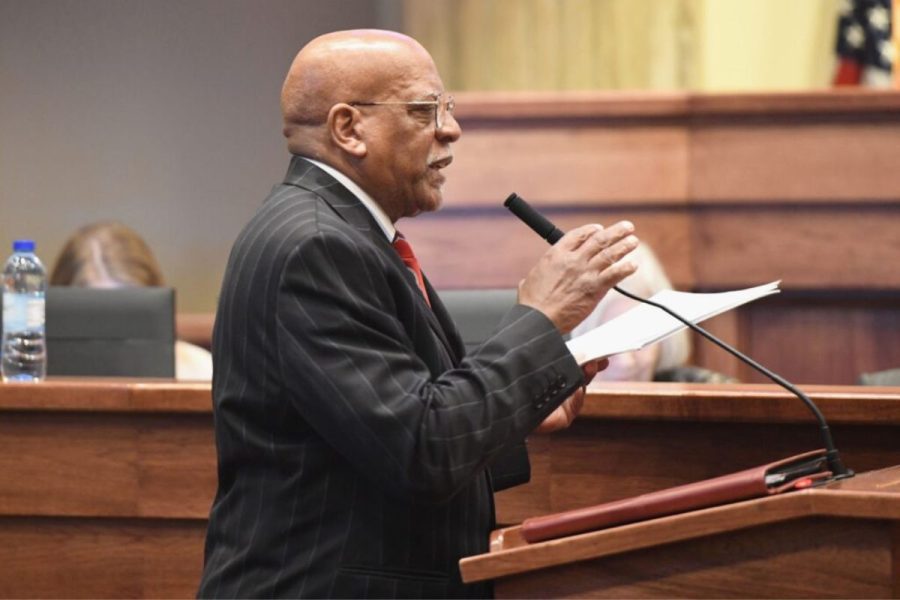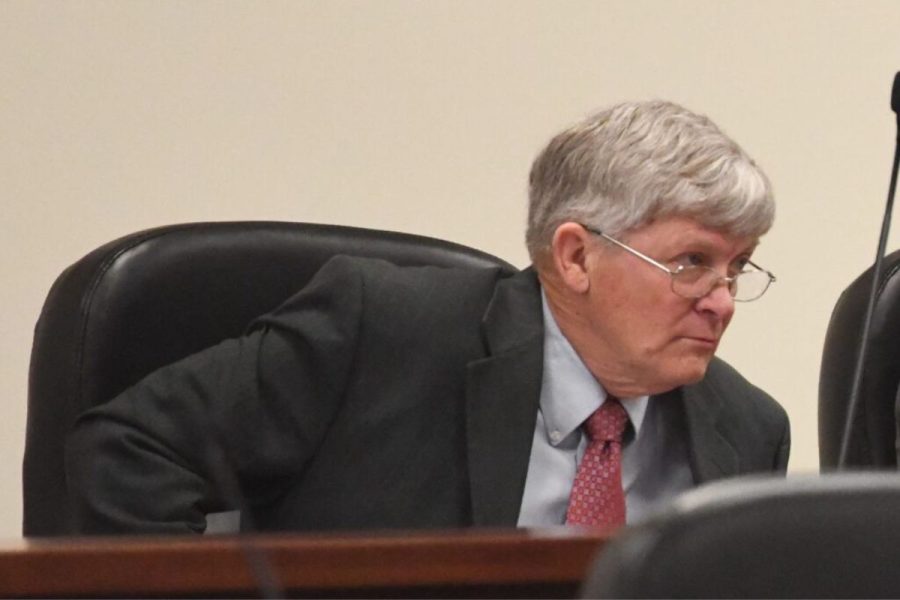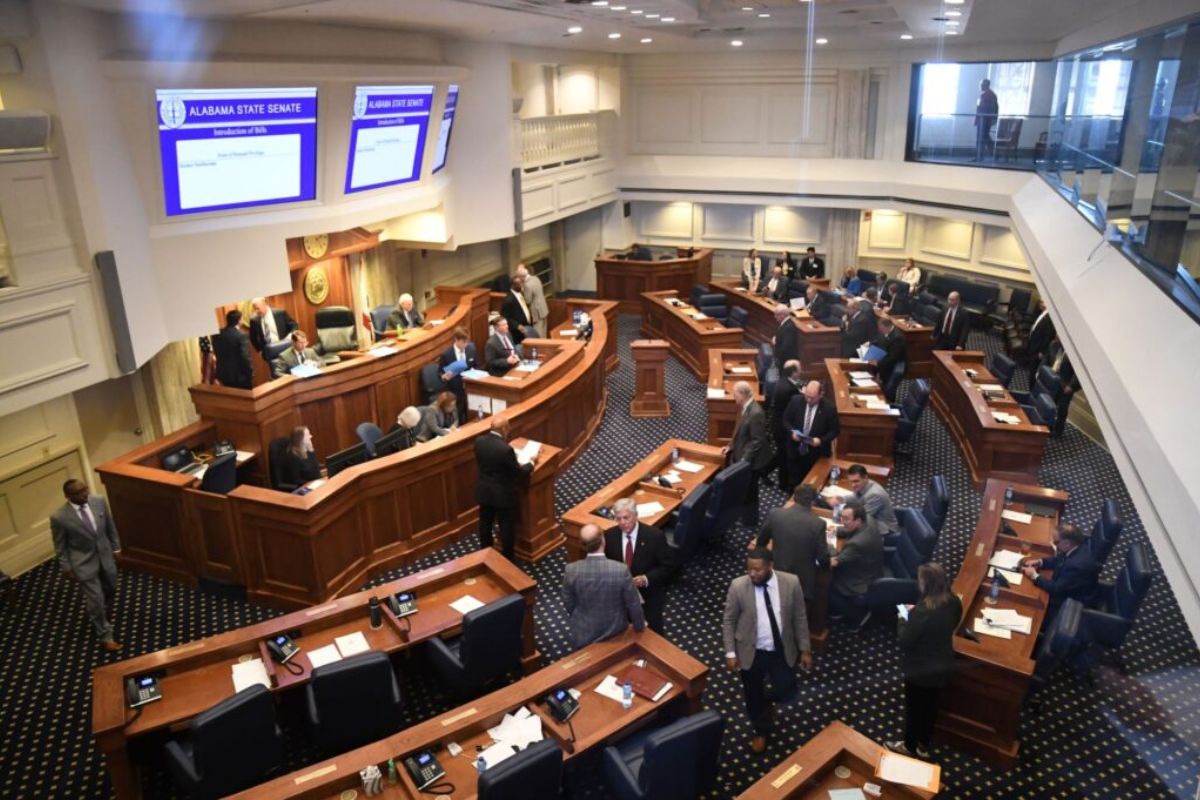Senate Passes Slimmed-Down Gambling Bill: Tuscumbia , The recent approval of a slimmed-down gambling bill by the Senate has sparked intrigue and speculation regarding its contents. This modified legislation has piqued the interest of many as it raises questions about the specific provisions that have been altered or omitted.
The Senate’s decision to pass this amended bill has left stakeholders and observers eager to uncover the nuances hidden within the newly approved gambling legislation. The implications of these modifications are yet to be fully understood, prompting a closer examination of what lies inside this streamlined bill.
Alabama Senate Approves Modified Gambling Legislation
The Alabama Senate has given its approval to a modified gambling legislation bill, which underwent significant alterations from its original form. Initially proposed by Rep. Chris Blackshear, R-Smiths Station, HB 151 and HB 152 included provisions for a lottery, a state gambling commission, casino gaming, sports wagering at seven locations, and negotiations with the Poarch Band of Creek Indians. However, the Senate’s version, crafted during an intense eight-hour session, retains the lottery and compact aspects while omitting sports wagering and casino gaming. The revised bill now permits only pari-mutuel betting and historic horse racing machines at the designated venues.
The modifications made by the Senate reflect a more conservative approach to gambling expansion in the state, focusing primarily on forms of betting that have been established for some time. By excluding newer forms of gambling such as sports wagering and casino gaming, the Senate has aimed to strike a balance between generating revenue and addressing concerns about the potential societal impacts of expanded gambling. This altered legislation sets a narrower scope for gambling activities in Alabama compared to the original proposal, emphasizing a more cautious and limited approach.
Tense Senate Session Alters Alabama Gambling Legislation
During a rigorous eight-hour session, the Alabama Senate implemented significant changes to the gambling legislation proposed by Rep. Chris Blackshear, R-Smiths Station, stripping away provisions for sports wagering and casino gaming in favor of a more limited scope focused on pari-mutuel betting and historic horse racing machines at specified locations.
The amendments introduced during the tense session marked a departure from the original House bills, HB 151 and HB 152, which sought to establish a state lottery, a gambling commission, and authorize sports wagering and casino gaming at seven designated venues. The Senate’s version, however, after a lengthy process of amendments, narrowed the scope of approved activities to only include pari-mutuel betting and historic horse racing machines at specific locations.
This shift in focus elicited intense debates and negotiations among senators, reflecting the complexity and sensitivity surrounding gambling legislation in Alabama. The altered legislation now sets the stage for further discussions and potential disputes as it moves forward in the legislative process.

ALSO READ: Sewell’s Victory Rep. Issues Statement on Election Win
Alabama Senate’s Amendments Spark Disputes Over Gambling Legislation
Amid contentious debates and strong opposition, the Alabama Senate’s amendments to the gambling legislation have ignited significant disputes over the revised framework. The approval of HB 151 and HB 152, initially encompassing a lottery, a state gambling commission, casino gaming, and sports wagering at specified locations, faced substantial alterations during a prolonged Senate session. The revised version, stripped of sports wagering and casino gaming provisions, now only permits pari-mutuel betting and historic horse racing machines at designated sites, causing uproar among stakeholders.
The tension and opposition surrounding the Senate’s modifications stem from diverging views on the scope and nature of gambling expansion in Alabama. While some argue for a comprehensive approach to maximize revenue potential and economic benefits, others express concerns over the social implications and potential harms associated with broader gambling options. As disputes escalate, the future of the gambling legislation remains uncertain, with competing interests vying for influence and policymakers navigating a complex landscape of competing priorities and values.
Distribution Disputes and Financial Impact in Alabama Gambling Legislation
Debates over distribution and financial implications have been ignited by the Alabama Senate’s modifications to the gambling legislation sponsored by Rep. Chris Blackshear, R-Smiths Station. The amendments to HB 151 and HB 152, now set to return to the House, have reshaped the proposed gambling landscape in Alabama. The exclusion of sports wagering and casino gaming, while maintaining the lottery and compact components, has significantly altered the anticipated revenue. The maximum revenue projection has been slashed from $1.2 billion in the original House version to $350 million in the Senate-approved bills.
Moreover, the distribution of funds has undergone a substantial revision. The new allocation directs one-third of the revenue to education, another third to the General Fund, and the final third to infrastructure projects such as roads and bridges. These changes have sparked concerns and disputes regarding the overall financial impact on the state. As the gambling legislation progresses through the legislative process, stakeholders continue to scrutinize the implications of these modifications on Alabama’s financial future.

News in Brief
Alabama Senate recently approved a modified gambling bill, marking a departure from the original proposal. The revised legislation, crafted during an intensive eight-hour session, retains provisions for a state lottery and compacts but omits sports wagering and casino gaming. Pari-mutuel betting and historic horse racing machines at designated venues are now the approved gambling activities. The alterations reflect a more conservative approach, addressing concerns about expanded gambling’s societal impact while still generating revenue.
Tense debates and disputes ensued during the session, highlighting the complexity surrounding gambling legislation in Alabama. The amendments spark disputes over the revised framework, with stakeholders clashing over the scope and nature of gambling expansion in the state. Additionally, distribution and financial impact concerns arise as the altered legislation progresses through the legislative process, with changes slashing revenue projections and reshaping fund allocations.

